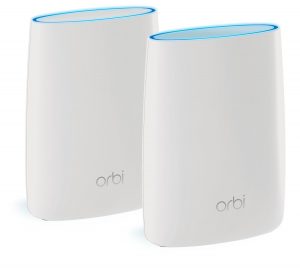After my less than great experience trying out Netgear's Orbi wireless mesh product, I continued looking around for a better home wireless networking option.
I checked out the second generation Eero, but it wanted to replace my router, didn't support an OpenVPN server, and was going to cost $100/year ongoing for cloud-based services (malware protection, parental controls) that I want to manage locally. ASUS's HiveSpot aka Lyra offering looked interesting and would go nicely with my existing ASUS router, but the reviews I could find indicated deal-breaking performance problems. Google's Wifi option requires a persistent connection to their systems, doesn't support an OpenVPN server, and wants to replace my router to make use of most of its features.
Ubiquity's Unifi product line comes highly recommended by a number of people I trust. But as I explored what it can do and what I would need to do to manage it, I felt like I was crossing fully into the realm of "enterprise network administrator" instead of "home network user." Enabling something as standard as IPv6 included steps like "Copy the config.gateway.json file to the UniFi controller and force a provision on the USG." Not that big of a deal, but I've spent enough time doing command line management of network device config files professionally that I'm not super excited about doing it at home any more.
Then I found the Plume Wifi offering. I didn't find a lot of reviews about it, but the ones I did read indicated it had an innovative approach to providing an "advanced network topology," great speeds and a focus on doing wireless really well instead of trying to be an everything home networking appliance. That's what I wanted! They also had a detailed-but-beautiful website, a helpful blog (despite being on Medium) and some growing Twitter buzz. Once I confirmed that they'll let you try it out for 60 days with a money-back guarantee (assuming no damage and original packaging), I ordered a set of six units.






